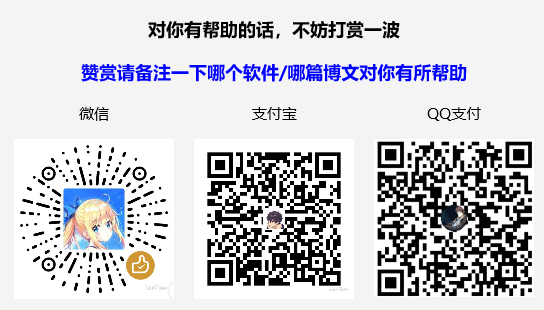安卓项目五子棋代码详解(五)
这一期给大家带来我自己添加的功能,最近还搞了个播放背景音乐和下棋音效,与这个一起讲了
开笔之前,忽然响起还有一个保存游戏没讲,真是失误。
保存游戏呢,就是将当前棋子的位置都保存下来,我们可以设想一个情景,玩家玩着游戏的时候,忽然一个电话过来,就会跳转到打电话的界面,或者一条QQ消息要处理,玩家跳转到了QQ的界面处理消息,待他处理完之后,就会返回游戏,如果我们没有设置保存游戏的这个方法的话,那么玩家再次进入的时候就是跟开始的一样,这样的体验非常糟糕,所以保存游戏这个方法是必须要有的。
首先在Panel类中声明四个静态变量
private static final String INSTANCE = "instance";
private static final String INSTANCE_GAME_OVER = "instance_game_over" ;//游戏状态
private static final String INSTANCE_WHITE_ARRAY = "instance_white_array";//白棋坐标
private static final String INSTANCE_BLACK_ARRAY = "instance_black_array";//黑棋坐标
之后,复写onSaveInstanceState()和onRestoreInstanceState()这两个方法
@Override
protected Parcelable onSaveInstanceState() {//存储当前下棋状态
Bundle bundle = new Bundle();
bundle.putParcelable(INSTANCE, super.onSaveInstanceState());
bundle.putBoolean(INSTANCE_GAME_OVER, IsGameOver);
bundle.putParcelableArrayList(INSTANCE_WHITE_ARRAY, Whitearray);
bundle.putParcelableArrayList(INSTANCE_BLACK_ARRAY, Blackarray);
return bundle;
}
@Override
protected void onRestoreInstanceState(Parcelable state) {//恢复下棋状态
if(state instanceof Bundle){
Bundle bundle = (Bundle) state;
IsGameOver = bundle.getBoolean(INSTANCE_GAME_OVER);
Whitearray = bundle.getParcelable(INSTANCE_WHITE_ARRAY);
Blackarray = bundle.getParcelable(INSTANCE_BLACK_ARRAY);
super.onRestoreInstanceState(bundle.getParcelable(INSTANCE));
return;
}
这里简单的解释一下,当用户跳转到其他的界面的时候,onSaveInstanceState()这个方法就会执行,将当前游戏状态,白棋坐标与黑棋坐标储存,返回bundle,这个bundle我个人理解成一个钥匙或者是令牌,用户回到游戏,判断语句判断是否有钥匙或令牌,若有,就开门,恢复已储存的东西
接下来就是关于界面及相关功能的介绍详细讲解
,给大家上张图片
首先,我们要定义一个xml界面,如图,可以知道有着七个控件
xml代码如下
<RelativeLayout xmlns:android="http://schemas.android.com/apk/res/android"
xmlns:tools="http://schemas.android.com/tools"
android:id="@+id/main"
android:layout_width="match_parent"
android:layout_height="match_parent"
android:background="@drawable/bsd"
tools:context=".MainActivity" >
<com.wan.wuziqi.Panel
android:id="@+id/wuziqi"
android:layout_width="match_parent"
android:layout_height="match_parent"
android:layout_centerInParent="true"
android:visibility="gone"
/>
<Button
android:id="@+id/gamestart"
android:layout_width="120dp"
android:layout_height="60dp"
android:background="@drawable/bgcolor"
android:visibility="visible"
android:layout_alignParentTop="true"
android:layout_centerHorizontal="true"
android:layout_marginTop="131dp"
android:text="@string/gamestart" />
<Button
android:id="@+id/changebackground"
android:visibility="visible"
android:layout_width="120dp"
android:layout_height="60dp"
android:layout_alignLeft="@+id/gamestart"
android:layout_below="@+id/gamestart"
android:layout_marginTop="14dp"
android:background="@drawable/bgcolor"
android:text="@string/changebackground" />
<Button
android:id="@+id/about"
android:visibility="visible"
android:layout_width="120dp"
android:layout_height="60dp"
android:layout_alignLeft="@+id/quit"
android:layout_below="@+id/quit"
android:layout_marginTop="14dp"
android:background="@drawable/bgcolor"
android:text="@string/about" />
<Button
android:id="@+id/quit"
android:visibility="visible"
android:layout_width="120dp"
android:layout_height="60dp"
android:layout_alignLeft="@+id/changebackground"
android:layout_below="@+id/changebackground"
android:layout_marginTop="16dp"
android:background="@drawable/bgcolor"
android:text="@string/quit" />
<ImageView
android:id="@+id/title"
android:layout_width="200dp"
android:layout_height="80dp"
android:layout_alignParentTop="true"
android:layout_centerHorizontal="true"
android:src="@drawable/title"
android:visibility="visible" />
<Button
android:id="@+id/luozisound"
android:layout_width="25dp"
android:layout_height="25dp"
android:layout_alignParentLeft="true"
android:layout_alignParentTop="true"
android:background="@drawable/yx1"
/>
<Button
android:id="@+id/bgmsound"
android:layout_width="25dp"
android:layout_height="25dp"
android:layout_alignBottom="@+id/luozisound"
android:layout_toRightOf="@+id/luozisound"
android:background="@drawable/bgm1"
/>
</RelativeLayout>
标题上的污子棋是一个ImageView,其余的都是button按钮
背景直接在relativeLayout中设置背景就好,其余的也是简简单单的设置一下图片,位置的话直接用拖动就好,所见即所得,这倒是很方便。
值得一提的是,button中我用的背景是圆角矩形,上面的文字都是调用string中的字符,写在string中也是方便管理,左上角的两个button是我用来实现控制背景音乐和音效的控制开关,点击就是关闭
接下来就是到java代码部分了
在MainActiviity 的onCreate()方法上方声明变量
Panel p;
Button gamestart,changebackground,quit,about,bgmsound,luozisound;
View imageview;
RelativeLayout relativelayout;//更换背景需要调用此对象
private MediaPlayer bgmsoundPlayer;//背景音乐对象
int i=0;
之后,在onCreate()方法之中使用findViewbyID()方法
p = (Panel)findViewById(R.id.wuziqi);
gamestart = (Button)findViewById(R.id.gamestart);
changebackground = (Button)findViewById(R.id.changebackground);
quit = (Button)findViewById(R.id.quit);
about = (Button)findViewById(R.id.about);
imageview = (View)findViewById(R.id.title);
bgmsound = (Button)findViewById(R.id.bgmsound);
luozisound = (Button)findViewById(R.id.luozisound);
relativelayout = (RelativeLayout)findViewById(R.id.main);
之后,初始化背景音乐的文件
bgmsoundPlayer = MediaPlayer.create(this, R.raw.bgm);//加载背景音乐文件资源,准备状态,start()方法才可以成功播放
bgmsoundPlayer.setLooping(true);//设置循环播放
bgmsoundPlayer.start();
背景音乐文件放在res/raw的文件夹中,若没有可以新建一个
在之后,就是为button按钮绑定监听器,重写onClick()事件方法
ButtonListener buttonlistener = new ButtonListener();
gamestart.setOnClickListener(buttonlistener);
changebackground.setOnClickListener(buttonlistener);
quit.setOnClickListener(buttonlistener);
about.setOnClickListener(buttonlistener);
bgmsound.setOnClickListener(buttonlistener);
luozisound.setOnClickListener(buttonlistener);
class ButtonListener implements OnClickListener{
@Override
public void onClick(View v) {
switch (v.getId()) {
case R.id.gamestart:
conceal();
p.setVisibility(View.VISIBLE);
break;
case R.id.changebackground:
changebackground();
break;
case R.id.quit:
quit();
break;
case R.id.about:
AlertDialog.Builder builder1 = new AlertDialog.Builder(MainActivity.this);//参数里面注意!!!
builder1.setTitle("关于");
builder1.setMessage("作者:柯兴新一\n说明:本软件纯属娱乐,勿作商业用途!!");
builder1.setPositiveButton("确定", new DialogInterface.OnClickListener() {
@Override
public void onClick(DialogInterface arg0, int arg1) {
arg0.cancel();
}});
builder1.create().show();
break;
case R.id.luozisound:
luoziButtonChange(p.luozisoundOn);
p.luozisoundOn = !p.luozisoundOn;
case R.id.bgmsound:
bgmButtonChange(p.bgmsoundOn);
p.bgmsoundOn = !p.bgmsoundOn;
default:
break;
}
}
这里使用了switch语句,调用View里的getId()方法获得当前触摸控件的ID,之后由case语句为不同ID分配不同的方法
这里首先要说明的是,除了左上角的那两个button按钮不用隐藏,其余的都应该是点击一下之后便是隐藏起来,由于代码相同,为了使代码简洁,我就把设置button按钮隐藏的代码写进了conceal()方法之中
private void conceal(){
imageview.setVisibility(View.INVISIBLE);
gamestart.setVisibility(View.INVISIBLE);
changebackground.setVisibility(View.INVISIBLE);
quit.setVisibility(View.INVISIBLE);
about.setVisibility(View.INVISIBLE);
}
改变背景的方法
private void changebackground(){
switch (i){
case 0:
relativelayout.setBackgroundResource(R.drawable.bsd2);
i++;
break;
case 1:
relativelayout.setBackgroundResource(R.drawable.bsd3);
i++;
break;
case 2:
relativelayout.setBackgroundResource(R.drawable.bsd4);
i++;
break;
case 3:
relativelayout.setBackgroundResource(R.drawable.bsd5);
i++;
break;
case 4:
relativelayout.setBackgroundResource(R.drawable.bsd6);
i++;
break;
case 5:
relativelayout.setBackgroundResource(R.drawable.bsd7);
i++;
break;
case 6:
relativelayout.setBackgroundResource(R.drawable.bsd8);
i++;
break;
case 7:
relativelayout.setBackgroundResource(R.drawable.bsd);
i=0;
break;
}
}
}
这里说明一下,在之前的声明有声明了一个int型的变量i,它的目的就是用在改变背景的这里,就相当于一个定时器,还是由switch()语句,由i的值改变从而换成不同的背景,当然,若果你想的话,这里还可以弄成一个随机更换背景图片的,在case 末尾给i 随机赋值就可以达到随机的更换背景图片的效果了,具体的请各位自己去尝试。
quit()方法
private void quit(){
AlertDialog.Builder builder = new AlertDialog.Builder(MainActivity.this);//参数里面注意!!!
builder.setMessage("是否退出?");
builder.setPositiveButton("是", new DialogInterface.OnClickListener() {
@Override
public void onClick(DialogInterface dialog, int which) {
dialog.cancel();
onDestroy();
}
}).setNegativeButton("否", new DialogInterface.OnClickListener() {
@Override
public void onClick(DialogInterface dialog, int which) {
dialog.cancel();
}
});
builder.create().show();
}
点击退出游戏按钮时,会弹出一个对话框,由用户选择是否退出
第一行代码一直搞了半天,发现是里面参数的问题,所以一定要注意参数
builder.setPositiveButton("是",新建监听器).setNegativeButton("否", 新建监听器);
positive是消极的,negative是积极的,不过这两个按钮监听器里的onClick事件不分消极还是积极的
quit()里的onDestroy()方法
@Override
protected void onDestroy() {
super.onDestroy();
System.exit(0);
}
}
System.exit(0)为完全退出
关于背景音乐和音效,我还设置了点击变色的功能
我定义了两个方法,luoziButtonChange()和bgmButtonChange()方法,参数里面传入一个boolean值
PS:bgmsoundOn和luozisoundOn这两个是在Panel类中定义的boolean值,默认是true
点击之后就会进行逻辑计算,由!逻辑运算符转换数值
private void luoziButtonChange(boolean a){
if(a){
luozisound.setBackgroundResource(R.drawable.yx2);
}else{
luozisound.setBackgroundResource(R.drawable.yx1);
}
}
private void bgmButtonChange(boolean a){
if(a){
bgmsound.setBackgroundResource(R.drawable.bgm2);
bgmsoundPlayer.stop();
}else{
bgmsound.setBackgroundResource(R.drawable.bgm1);
try {
bgmsoundPlayer.prepare();//停止之后需要进入准备状态,下一次start()方法才可以成功播放
} catch (IllegalStateException e) {
e.printStackTrace();
} catch (IOException e) {
e.printStackTrace();
}
bgmsoundPlayer.start();
}
}
改变图片调用setBackgroundResource()方法,音效使用的是soundpool,还有个play()方法用来播放声音,每画一个棋子,就播放一次声音,所以我将play()方法放在了Panel类中的画棋子方法中了
luozisoundCheck()方法
public void luozisoundCheck(){
if(luozisoundOn){
luozisound.play(1,1, 1, 0, 0, 1);
}else{
luozisound.stop(1);
}
}
if语句判断luozisoundOn的值是否为true,为true执行播放,为fasle停止播放
关于soundpool相关,我整理了一下,请点击
讲完音效,到背景音乐了。
这背景音乐我其实找了好久的资料,但是总是实现不了,最后发现了问题,网上找的都是用对象new的一个对象,不知道为什么用不了,我的是直接声明才可以使用的,不太懂前面为什么不能用,找到了答案再补上吧
写在尾声:
五子棋作为android开发的简单项目,特别适合新手入门,还可以在五子棋中添加自己能够想象到功能,既可以学习,又可以从中得到乐趣。
我的五子棋还没有实现蓝牙对战,自创热点对战,AI对战,还有悔棋的功能,所以,我这系列还是没有结束的~~O(∩_∩)O哈哈~
最近因为学习侧滑菜单,eclipse上搞个Android5.0的SDK搞了半天都是不行的,所以转到了Android Studio平台,这环境也是搞了两天,真是累,不过可以用了,慢慢习惯Android Studio
感觉我的方法都是写在了Panel类中,有些影响可读性,之后有时间得优化一些项目,当然,用的是Android Studio





